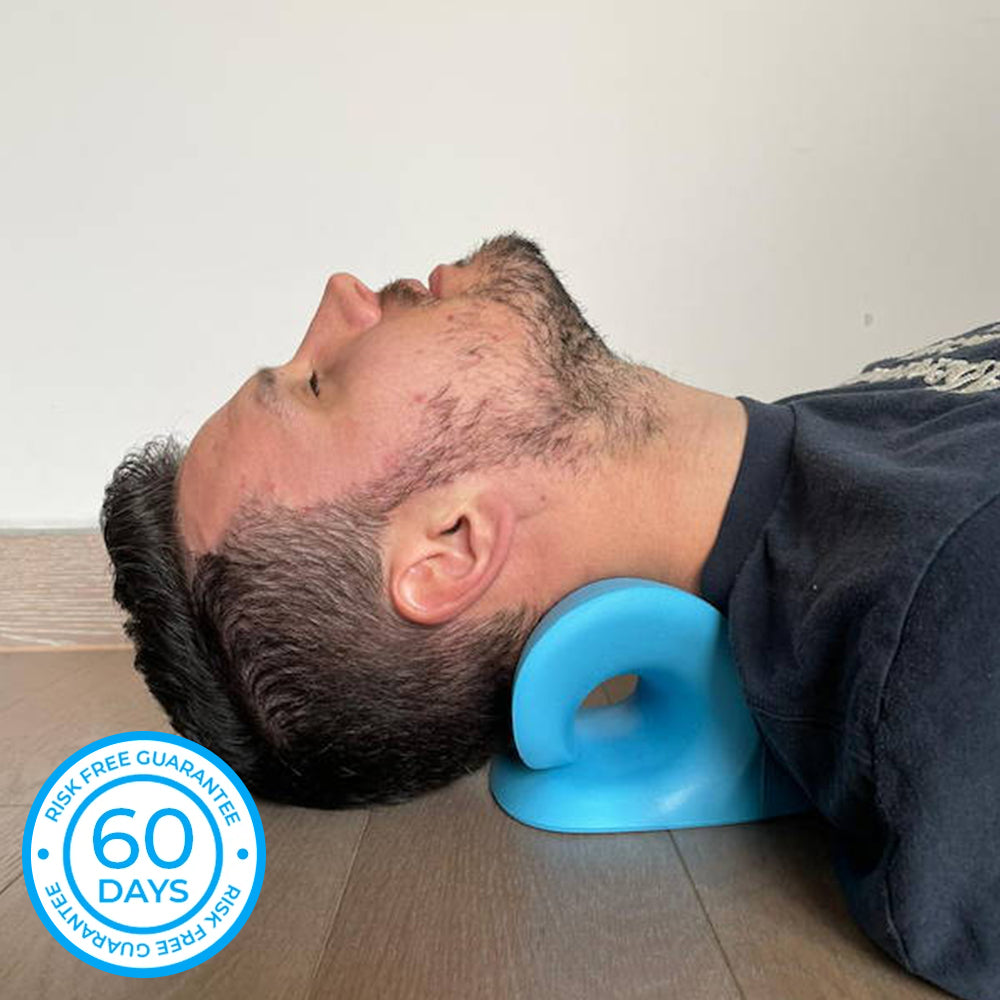Neck Cloud Testimonial: A Revolutionary Device for Neck and Spinal Column Wellness
Neck Cloud Testimonial: A Revolutionary Device for Neck and Spinal Column Wellness
Blog Article
The Influence of Stress on Neck Discomfort: Methods for Reducing Stress and Pain
In today's hectic world, it's obvious that stress has actually become a common consider the start and exacerbation of neck discomfort. The elaborate partnership between stress and anxiety and muscle stress frequently leaves people seeking remedy for the discomfort that ensues. By discovering targeted techniques focused on reducing stress and promoting relaxation, one can begin to attend to the origin causes of neck pain and work in the direction of an extra balanced state of well-being. Join us on a journey to unwind the influence of stress on neck pain and find efficient means to alleviate discomfort and improve general top quality of life.
Recognizing Stress-Related Neck Pain
Stress-related neck pain can show up as stress, tightness, or discomfort in the neck and shoulder location. The connection between stress and anxiety and neck discomfort lies in the body's physiological feedback to anxiety, which can result in muscle mass tension and rigidity in the neck muscular tissues.

Identifying Common Stress Areas
Regularly experienced by individuals under anxiety, tension areas in the body can give important understandings into the physical indications of psychological stress. One common tension location is the neck, where stress typically manifests physically. Stress headaches, rigid neck muscular tissues, and restricted variety of activity prevail signs of stress-related neck stress. The shoulders are another common location where stress accumulates. Tension can create the muscles in the shoulders to tighten, causing pain and pain. Furthermore, the top back is prone to tension accumulation, especially in individuals who experience persistent stress and anxiety. Poor position and long term sitting can worsen tension around. The jaw is likewise a typical place for stress-related stress, as many individuals squeeze their jaw or grind their teeth when stressed. Recognizing these common tension areas can help individuals acknowledge the physical indications of stress and anxiety and take actions to address them before they escalate into chronic pain or discomfort.
Implementing Relaxation Techniques
To efficiently handle stress-related tension in the body, carrying out relaxation techniques is essential. Relaxation techniques are valuable devices for minimizing neck discomfort triggered by tension. Deep breathing exercises can assist soothe the mind and unwind tense muscles in the neck and shoulders (neck cloud). Exercising mindfulness reflection can likewise be valuable in easing anxiety and promoting leisure. Modern muscle relaxation, where you methodically strained and after that kick back different muscle teams, can release built-up stress in the neck area. In addition, activities like yoga exercise and tai chi integrate both physical activity and leisure, making this them efficient practices for minimizing stress and neck discomfort. Taking routine breaks throughout the day to stretch and take a break can stop muscle tightness and tension from collecting. By incorporating these relaxation strategies into your day-to-day regimen, you can help handle stress and anxiety levels, lower tension in the neck, and alleviate discomfort connected with stress-induced neck pain.
Including Self-Care Practices
Incorporating self-care practices is crucial for keeping overall well-being and managing stress-related neck pain efficiently. Involving in normal exercise, such as mild extending exercises or yoga, can help minimize stress in the neck and shoulders. Exercising excellent posture throughout the day and taking frequent breaks from long term resting or display time can additionally protect against pressure on the neck muscular tissues.
In addition, prioritizing sufficient sleep and establishing a constant sleep regimen can add substantially to minimizing stress levels and advertising relaxation. Producing a relaxing bedtime routine, such as click over here now reviewing a book or taking a warm bathroom, can assist prepare the body and mind for relaxing sleep. In addition, preserving a balanced diet abundant in nutrients and staying hydrated can sustain general health and reduce swelling that may exacerbate neck discomfort.
Integrating mindfulness practices, such as deep breathing workouts or meditation, can help take care of anxiety and promote leisure. Taking some time for oneself, participating in leisure activities, and establishing boundaries to shield individual time are also vital elements of self-care that can contribute to minimizing tension and reducing neck discomfort.
Seeking Specialist Assistance
Just how can people effectively attend to persistent neck discomfort that is influencing their daily life and health? Looking for expert aid can be a vital action in managing and easing neck pain.
Chiropractic specialists specialize in back manipulation strategies to improve placement and decrease stress in useful source the neck location. Physical therapists use targeted stretches and exercises to enhance muscular tissues, enhance versatility, and boost overall neck function. Orthopedic professionals can offer sophisticated clinical treatments such as shots or medical options for severe cases of neck discomfort.
Verdict

Stress-related neck pain can manifest as tension, stiffness, or discomfort in the neck and shoulder area. The connection between tension and neck pain exists in the body's physical action to stress and anxiety, which can result in muscle tension and tightness in the neck muscle mass. Stress headaches, stiff neck muscles, and restricted range of activity are usual signs and symptoms of stress-related neck stress. By including these leisure strategies right into your everyday regimen, you can assist manage stress levels, reduce stress in the neck, and reduce discomfort linked with stress-induced neck discomfort.

Report this page